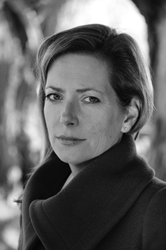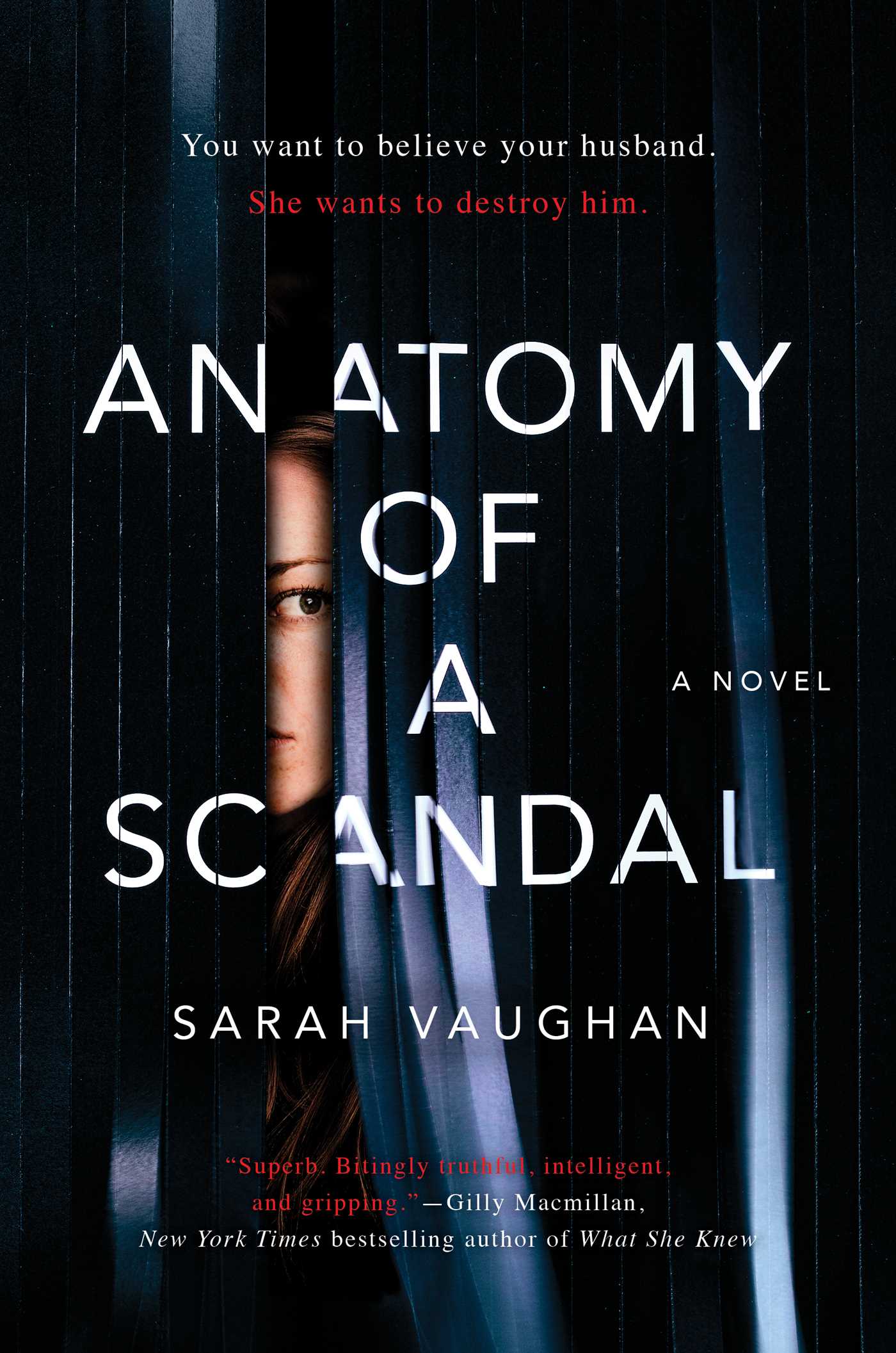 Sarah Vaughan is a former journalist who spent 11 years at the Guardian as a news reporter, health correspondent and political correspondent. Her latest novel, ANATOMY OF A SCANDAL, which releases on January 23rd, is a thriller about a scandal among Britain’s privileged elite and the women caught up in its wake. In her Holiday Blog post, Sarah explains the personal significance of Christmas 1999, when her then-boyfriend of three months gifted her with two books that she treasures to this very day: the first in the Harry Potter series and Nigella Lawson’s HOW TO BE A DOMESTIC GODDESS: Baking and the Art of Comfort Cooking.
Sarah Vaughan is a former journalist who spent 11 years at the Guardian as a news reporter, health correspondent and political correspondent. Her latest novel, ANATOMY OF A SCANDAL, which releases on January 23rd, is a thriller about a scandal among Britain’s privileged elite and the women caught up in its wake. In her Holiday Blog post, Sarah explains the personal significance of Christmas 1999, when her then-boyfriend of three months gifted her with two books that she treasures to this very day: the first in the Harry Potter series and Nigella Lawson’s HOW TO BE A DOMESTIC GODDESS: Baking and the Art of Comfort Cooking.
It was Christmas 1999. I’d been with my new boyfriend for three months, and a couple of presents from him under my mother’s tree looked very much like books.
I was touched. Not an avid reader himself, and still in the early stage of our relationship, he clearly sensed how to impress. I picked up the smaller, slighter, rectangular package and ripped the paper off.
It was a slim paperback with a bespectacled boy and a steam train on the cover. HARRY POTTER AND THE PHILOSOPHER’S STONE by a JK Rowling. O-kaaay. For a 27-year-old woman, a children’s book was an interesting choice. Perhaps he didn’t know me very well, after all. Or maybe he was ahead of the curve here? (I later discovered he’d had it recommended by a bookseller, who’d told him --- presciently --- it was the next big thing.)
The second rectangular package was heavy and far more substantial. A hardback with a matt slip jacket, a gold cover and ironic end papers: a collage of black and white photos showing 1950s women posing in their kitchens, all pert smiles, flared skirts and cinched waists. HOW TO BE A DOMESTIC GODDESS: Baking and the Art of Comfort Cooking by Nigella Lawson, I read. I turned the first couple of pages, and there was an inscription from the boyfriend who’d been inspired by the first part of the title. My heart swelled as I drank in the words he’d scrawled in that black fountain pen.
 Reader, I married him. Not for a couple of years, and not because of the books, of course --- although that Nigella gave me the first tangible, readable evidence that he might, perhaps, love me. (I think we’d been playing it relatively cool before then.)
Reader, I married him. Not for a couple of years, and not because of the books, of course --- although that Nigella gave me the first tangible, readable evidence that he might, perhaps, love me. (I think we’d been playing it relatively cool before then.)
Those first books from him were a potent gift because they indicated his thought; his care; the fact that he’d gone to a bookshop and sought out two very different books he thought I would enjoy. They epitomised why we give books as gifts. Not just because they’re easy to wrap but because, as every reader knows, if they’re chosen well they’re intensely considerate. Look, we say when we give a present of a book. I’ve been thinking about you, and I’m confident you’ll like this.
Down the years, we have traded recipe books each Christmas: a continued exchange of love letters that has proved more romantic than our more mundane, daily exchange of organisational texts. Our shelves groan with Jamie Olivers and Rick Steins; with early Gordon Ramsays and Marcus Wareings; with Honey & Co and Ottolenghi; with a doorstop of a Locatelli, as well as with chef’s memoirs and writings, such as Anthony Bourdain’s.
A few are more aspirational than practical, but many are well thumbed now; the baking books blotched with batter and the odd wine stain.
HOW TO BE A DOMESTIC GODDESS is the recipe book I turn to for children’s birthday cakes, for brownies, for her New York cheesecake. Its spine is broken and half-ripped off with over-use, its flyleaf discarded, though the page with my husband’s inscription is securely in place.
And the Harry Potter?
To my shame, I didn’t read it immediately. I discovered it while reading it a few years later to the first of our children, at around the time I was tentatively starting to write fiction myself. As I read every volume aloud, I read as a writer: assessing plot twists and pace; noting the age-old trope of good triumphing over evil, the emotional arc of the protagonist; scrutinising --- and discussing with my children --- why parts worked well.
“Did Daddy give you this?” my youngest asked, as I started the process of reading it aloud a second time. “It says Christmas 1999?” His nose wrinkled at the thought of a date that seemed inconceivable: a date from a different millennium, seven years before he was born.
“He did.” I said. “Be careful with it, now.”
And I was transported back to that moment when I opened those first presents from him, and the flare of excitement that he had thought to buy me a book.







